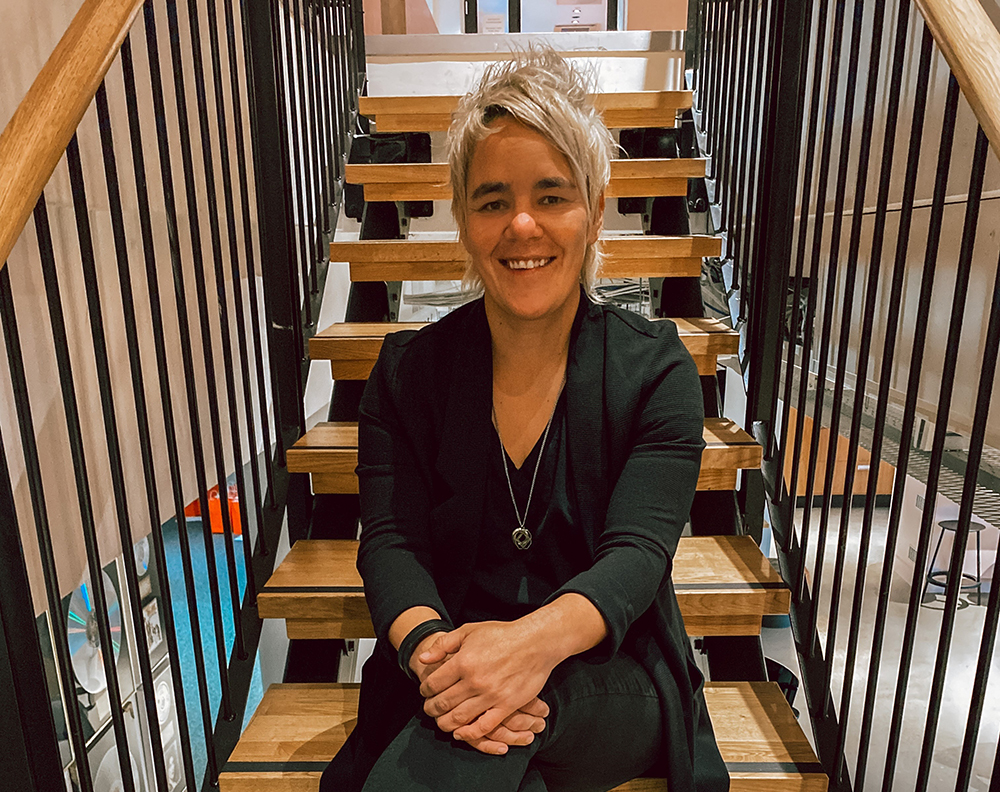(Hypebot) — Between managers, publicists, booking agents, promoters, and others, sorting out who does what in the music business can be a real head scratcher, particularly for those unfamiliar with what the industry is like behind the curtain. Here, Angela Mastrogiacomo offers a guide the various roles in the music industry
Guest post by Angela Mastrogiacomo of the TuneCore Blog
Quick—what does a manager do?
If you hesitated for a moment before ultimately fumbling around for some combination of, “They book me shows/they get me press/they do my social media/they make my dreams come true!”, you’d be altogether completely wrong and completely correct.
I know, it’s confusing right?
For way too long artists have been getting their roles confused. Thinking managers do press, publicists book shows, and tour managers book tours. And who could blame them? After all, the industry has become such a hodge-podge of different roles and it seems that they’re constantly changing depending on who you talk to.
We thought, maybe it’s time to set the record straight. After all, if you’re going to be hiring these people as you build your team out, you kind of want to know what it is they actually do, (and cost) am I right?
While this is by no means a fully comprehensive list, and yes, certain people might break outside the boundaries of these roles, it’s important to use this as a starting point for truly understanding what each person does—and doesn’t do — and what you can expect from them.
MANAGER
What they do: So, this is where it can get tricky. First, the role for a manager working with an indie artist is going to be totally different than a manager working with a major label artist. One way this is especially true is that management for indie artists tend to end up doing, well…everything. It becomes a combination of business and artist development, really. And so, this becomes a real point of confusion and, some level of expectancy from artists.
However, just because some managers choose to take on every single other role on this list does not mean that’s the norm, nor does it mean you should expect that. A manager’s role, in the simplest form, is to manage your career. That means they manage your finances (at least until you get what’s known as a ‘business manager’), help you choose other team members, advise you on your decisions, help you negotiate around gigs/opportunities, etc. They are there to manage what already exists.
What they don’t do: Managers don’t do all the work for you while you sit back and reap the benefits. There’s this weird misconception out there that if you’re not making your own dreams happen you can just get a manager and they’ll do it for you. I don’t know where that delusion came from but let me be the one to correct it and tell you that if you have no movement on your career, a manager is not going to be interested in working for free for five years to fix that. You need to do the hard work yourself and then, once you’ve started to gain some momentum, that’s when you want to start looking for a manager.
It’s kind of like the old saying—you’ll know when you’re ready for a manager, because they’ll find you. (Ed. note: be sure to read our interviews with some managers to get first-hand perspectives on this role!)
Average cost: Some indie managers will charge a base fee plus a percentage of your profits, but most managers will just do the percentage, between 15-20% of revenue. The base fee is usually for artists who are not actually making any/much money yet. Because if you’re only making $200/month, odds are a manager is going to find it tough to get inspired to hustle 24/7 for you for just $40/month.
PUBLICIST
What they do: Publicists are the ones that make you seem interesting to the rest of the world. On the surface, they get you press and a variety of placements (blog and Spotify primarily but depending on the agency, sometimes TV and radio), but their work goes so much beyond that. In addition to getting you placements and helping you build your brand, PR is the gift that keeps on giving—in that, you might not realize it but odds are that placement from a year ago you forgot about? Yeah, it helped get you that bigger placement this time around.
What they don’t do: They don’t manage your career, book your shows or run your paid ads. PR is not about sales. While in an ideal world PR and marketing work together, they are not the same thing.
Average cost: This widely depends on the size and experience of the agency, but expect to pay anywhere from $500/month to $1,500/month for most small to midsize companies.
BOOKING AGENT
What they do: Ok so here’s a hot topic. Booking Agent vs Promoter. The two are often used interchangeably but the truth is they’re incredibly different. So, what does a booking agent do? They book things, duh.
Just kidding. But they do book things—like your tour. They also try to get you a great spot on the lineup and make sure you actually get paid. (Like a manager, this likely means you need to be making some money before they’ll be interested in working with you).
Basically, the booking agent puts the puzzle together (routes the tour, decides on the regions you play, etc) and then the promoter, who they work closely with, helps book the local shows in each territory.
What they don’t do: Hang out with you on tour. They also don’t usually have direct contact with venues—that’s usually handled by the promoters, who the booking agent works closely with.
Average cost: Like a manager, a booking agent will usually take a percentage—anywhere from 10-15% of the show/tour is average.
PROMOTER
What they do: Promoters are the ones taking a good chunk of the financial risk. They pay for the gig up front, deal with the venue, and so on. They’re the behind the scenes workers that help make the whole thing run smoothly. Another big difference? You’re probably not hiring a promoter. What you would hire is a booking agent, who then works closely with the promoter to make sure you’re taken care of (see above).
What they don’t do: Book a tour for you. That’s up to your booking agent.
Average cost: This depends but, about 15% of the show after expenses (depending on the size of the show, how much work went into it, etc.) is likely.
DIGITAL MARKETER
What they do: These are the people in charge of upping sales—so for instance, running ads or writing compelling content copy would both fall under the role of a digital marketer.
What they don’t do: They don’t do your PR, or (usually) post your social media content for you.
Average cost: Anywhere depending on a few hundred to a few thousand per month, depending on your needs.
PHOTOGRAPHER
What they do: They take your photos! Promo photos for press and your EPK, live shots, you name it.
What they don’t do: Things that aren’t taking photos.
Average cost: Anywhere from a few hundred to a few thousand dollars depending on their experience and portfolio.
VIDEOGRAPHER
What they do: You know how you really want a great live show video for your EPK, so you can book better gigs? Or how you need someone to film your awesome music video? That’s where videographers come in.
What they don’t do: Things that aren’t video. (Note: this means not all videographers are also photographers and vice versa.)
Average cost: Depending on the gig, you’re probably looking at $1,000 and up. Sure, it might be less if they’re just filming a quick 20 minute set vs. a full fledged music video but, I would budget around this much.
TOUR MANAGER
What they do: Your best friend on the road. These are the people who make your life a million times easier on tour. They’ll coordinate everything from your accommodations to making sure everything is ready to go with the venue and promoter (not to mention making sure you get paid!). Basically, they help make tours successful so you can just focus on the music and your beauty sleep.
What they don’t do: They don’t actually book the tour. (I mean come on, don’t they do enough with all the coordinating and planning on tour?!)
Average cost: They’re paid a day rate, so that’s up to you and them to work out. However, most TMs on tour with emerging artists will be at least $50-$100/day.
No idea what to post on social media? Join me for my free video series How to Get Your Next 1,000. Fans
Angela Mastrogiacomo is the founder and CEO of Muddy Paw PR, where her artists have seen placements on Alternative Press, Noisey, Substream, Spotify and more as well as the THRIVE mentorship community—an online community that provides indie artists with affordable year-round mentoring from music industry experts, and much more.


























































